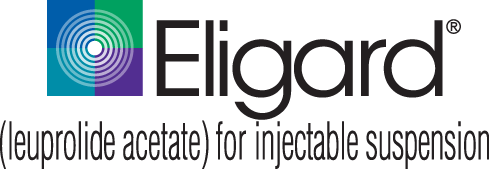PROVIDERS
Financial Toxicity: How drug costs directly impacts patient care
Learn about financial toxicity and ways to help navigate this burden to care


Learn how higher WAC products can directly cause higher financial burden to patients

NURSES
Learn how to support and help navigate financial toxicity for your patients

PATIENTS
Learn about support and resources to help navigate financial toxicity
To learn more about ELIGARD’s proven efficacy and flexible dosing visit EligardHCP.com
Important Safety Information
ELIGARD®, (leuprolide acetate) for injectable suspension, is a gonadotropin releasing hormone (GnRH) agonist indicated for the treatment of advanced prostate cancer
ELIGARD is contraindicated in patients with hypersensitivity to GnRH, GnRH agonists, or any of the components of ELIGARD. Anaphylactic reactions to synthetic GnRH or GnRH agonists have been reported in the literature. Transient increase in serum levels of testosterone during treatment may result in worsening of symptoms or onset of new signs and symptoms during the first few weeks of treatment, including bone pain, neuropathy, hematuria, bladder outlet obstruction, ureteral obstruction, or spinal cord compression. Monitor patients at risk closely and manage as appropriate.
Hyperglycemia and an increased risk of developing diabetes have been reported in men receiving GnRH agonists. Monitor blood glucose level and manage according to current clinical practice. Increased risk of myocardial infarction, sudden cardiac death and stroke has also been reported with use of GnRH agonists in men. Monitor for cardiovascular disease and manage according to current clinical practice. Androgen deprivation therapy may prolong the QT/QTc interval. Consider risks and benefits. Convulsions have been observed in patients taking leuprolide acetate with or without a history of predisposing factors. Manage convulsions according to current clinical practice. Severe cutaneous adverse reactions (SCARs), including Steve-Johnson syndrome/toxic epidermal necrolysis, and erythema multiforme, occurred in patients receiving ELIGARD. Monitor for and advise patients of the signs and symptoms of SCARs. May cause fetal harm.
ELIGARD may impair fertility in males of reproductive potential.
The most common injection site adverse events are transient burning and stinging, pain, bruising, and erythema. The most common systemic adverse events include mild to severe hot flashes/sweats, malaise and fatigue, weakness, myalgia, dizziness, clamminess, testicular atrophy, and gynecomastia. As with other GnRH agonists, other adverse reactions, including decreased bone density and rare cases of pituitary apoplexy have been reported.
Please see Full Prescribing Information for additional Important Safety Information.

